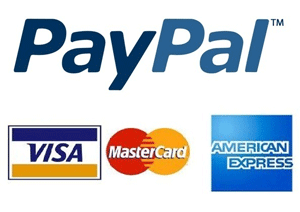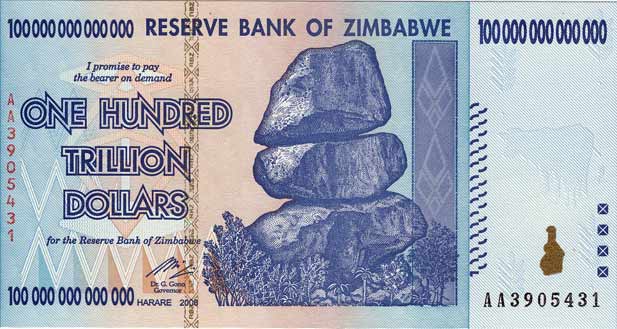Paypal comes to Zimbabwe by Staff reporter 16 June 2014 |
LONDON- PayPal is entering 10 new countries this week, including Zimbabwe, providing online payment alternatives for consumers via mobile phones or PCs in markets often blighted by financial fraud.Rupert Keeley, the executive in charge of the EMEA region of PayPal, the payments unit of eBay Inc, said in an interview on Monday the expansion would bring the number of countries it serves to 203.Starting on Tuesday, consumers in Nigeria, which has 60 million users and has Africa's largest population, along with nine other markets in sub-Saharan Africa, Eastern Europe and Latin America will be able to make payments through PayPal."PayPal has been going through a period of reinvention, refreshing many of its services to make them easier to use on mobile (phones), allowing us to expand into fast-developing markets," Keeley said.Once the services go live, customers in the 10 countries with access to the Web and a bank card authorized for Internet transactions will be able to register for a PayPal account and make payments to millions of sites worldwide.Initially, PayPal is only offering "send money" services for consumers to pay for goods and services at PayPal-enabled merchant sites while safeguarding their financial details. This is free to consumers and covered by fees it charges merchants."We think we can give our sellers selling into this market a great deal of reassurance," said Keeley, a former regional banking executive with Standard Chartered Plc and senior executive with payment card company Visa Inc.PayPal does not yet cover peer-to-peer transactions, which allow consumers to send money to other consumers. It has not yet enabled local merchants in the new markets to receive payments, nor is it offering other forms of banking services, he said.A 2013 survey of 200 UK ecommerce sites by Visa's CyberSource unit estimated that 1.26 percent of online orders are fraudulent and that 85 percent of merchants expected fraud to increase or remain static last year.CyberSource also estimated that suspicion of fraudulent transactions result in 8.2 percent of online orders in Latin America being rejected by merchants, compared with 5.5 percent in Europe and 2.7 percent in the United States and Canada.Such fraud can include ID theft, social engineering, phishing and automated harvesting of customer financial data via botnets, or networks of computers controlled by hackers.A total of 80 million Internet users stand to gain access to PayPal global services this week, including those in five European markets - Belarus, Macedonia, Moldova, Monaco and Montenegro, four in the African nations of Nigeria, Cameroon, Ivory Coast, and Zimbabwe, as well as Paraguay. Internet usage figures are based on research by Euromonitor International.PayPal counts 148 million active accounts worldwide. .responsive-middle-article { width: 674px; height: 200px; } (adsbygoogle = window.adsbygoogle || []).push({}); Last week, MasterCard Inc, the world's second-largest debit and credit card company, and a PayPal rival in payment processing, said it was working with the Nigerian government on a pilot to overlay payment technology on a new national identity card.PayPal has operated in 190 markets since 2007 and added three countries - Egypt, Georgia and Serbia last year. Roughly a quarter of the $52 billion in payment volumes PayPal reported in the first quarter of 2014 were for cross-border transactions. PayPal reported $1.8 billion in revenue during the period. Paypal Bank Source: newsday -
 PayPal’s opening up of its services to Zimbabwe this past week has created a lot of excitement in the market. Many entrepreneurs see this as a godsend and I can just see them smiling all the way FROM the bank (after going to deposit their funds to start transacting using the payment gateway). But there may be some of you who are wondering what all the excitement is about. Why is everyone (well at least those online) excited about being able to PAY other people and NOT SELL their goods and service? I penned an article yesterday of why I felt that PayPal wouldn’t be a hit just yet here in Zimbabwe and how local payment solutions were better poised to service the Zimbabwean market. Well, there are still sections of the populace that may want to know what they can pay with PayPal now that it has opened up. Let me first break down to how it works. As PayPal is a payment gateway, it accepts various payment providers through their system (an option that many suppliers would prefer), including VISA and MasterCard. If any website used PayPal to process their payments, even though you have a VISA (for example), because Zimbabwean cards were not recognised by PayPal your card would be rejected and essentially your transaction would fail. This created a stumbling block for many-an-entrepreneur that needed to buy services and products online. Well, PayPal has finally recognised that we exist and have been gracious enough to open their platform to us (someone give these guys a Bells). With this comes a host of opportunities, and I hope to list at least 10 services that you can now enjoy as a Zimbo.
PayPal’s opening up of its services to Zimbabwe this past week has created a lot of excitement in the market. Many entrepreneurs see this as a godsend and I can just see them smiling all the way FROM the bank (after going to deposit their funds to start transacting using the payment gateway). But there may be some of you who are wondering what all the excitement is about. Why is everyone (well at least those online) excited about being able to PAY other people and NOT SELL their goods and service? I penned an article yesterday of why I felt that PayPal wouldn’t be a hit just yet here in Zimbabwe and how local payment solutions were better poised to service the Zimbabwean market. Well, there are still sections of the populace that may want to know what they can pay with PayPal now that it has opened up. Let me first break down to how it works. As PayPal is a payment gateway, it accepts various payment providers through their system (an option that many suppliers would prefer), including VISA and MasterCard. If any website used PayPal to process their payments, even though you have a VISA (for example), because Zimbabwean cards were not recognised by PayPal your card would be rejected and essentially your transaction would fail. This created a stumbling block for many-an-entrepreneur that needed to buy services and products online. Well, PayPal has finally recognised that we exist and have been gracious enough to open their platform to us (someone give these guys a Bells). With this comes a host of opportunities, and I hope to list at least 10 services that you can now enjoy as a Zimbo. When TelOne started billing customers in US dollars back in February 2009, it was accused of having converted Zimbabwean Dollar bills to US dollars at unrealistic exchange rates resulting in ridiculously high bills which subscribers failed to settle.
When TelOne started billing customers in US dollars back in February 2009, it was accused of having converted Zimbabwean Dollar bills to US dollars at unrealistic exchange rates resulting in ridiculously high bills which subscribers failed to settle.





